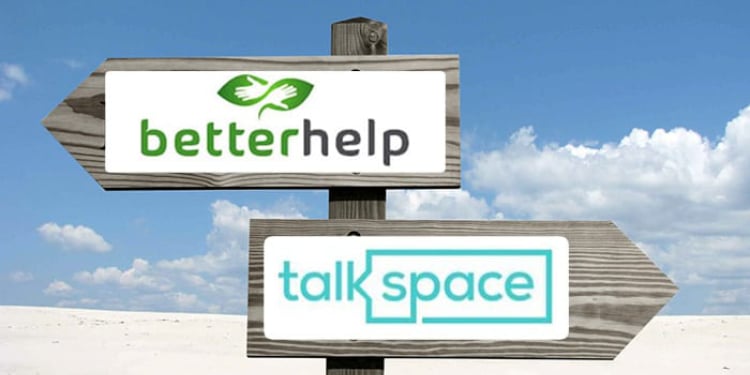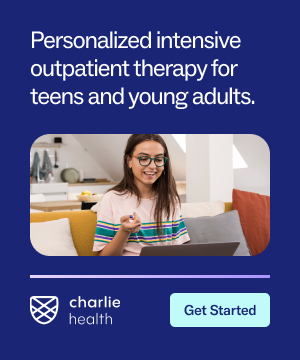










The concept of free psychological services is not new. We only need to look at services such as Alcoholics Anonymous, court-ordered psychiatrist visits, and crisis intervention programs to find examples of free or mostly free psychological services. Technology has propelled the rise of online therapy chat providers, not only in America but across the world. People living in rural areas or other distant locations now have psychotherapy available to them with one click of a button.

While most companies offering online therapy essentially offer a virtual version of traditional in-office psychotherapy for a fee, some services are offering alternative forms of treatment via digital tools for free. These free services typically provide access to mental health resources and community support which can be valuable. However, the individuals providing these services are normally peers with a common shared experience or unqualified volunteers. They are unable to offer the services and support that a trained mental health professional can deliver, despite often describing themselves as a form of “free online counseling.”
The free counseling providers you will most likely encounter online usually fall into one of three categories. Although there are nonprofits and government-subsidized programs, they are primarily in-person treatments, and not what one would normally categorize as fully online solutions.
Mostly peer-supported, this option caters to those seeking help from others that have experienced similar mental health issues. These chat rooms do not always include a mental health professional on staff that can confirm the advice provided or moderate the discussions. Since these rooms are open 24/7, some organizers (sometimes knowledgeable professionals) might enter the chat for a few hours, which can be very helpful at times, but these “drop-ins” are limited and not always consistent.

Forums provide individuals with opportunities to post their mental health questions as well as answer those of their peers. Some services allow you to directly submit questions to a professional (sometimes through email services) on various mental health issues. Most question-and-answer forums are open to anyone who signs up, so the responses can range from incredibly helpful to downright harmful and everything in between.
Some sites offer an option of supportive listening-based counseling services using volunteers trained in active listening. These services host free online communities and provide the option of paid professional teletherapy.
Therefore, they follow the model of many service providers on the internet, offering a free basic service and a premium service which requires payment. They also have the aim of creating caring, compassionate, and inclusive communities of listeners and participants. Such services are at least, in part, influenced by an Internet culture of inclusivity, transparency, and accessibility of information. However, they also are very explicit in stating that their service is not suitable for people in crisis and generally refer such individuals to phone helplines or emergency services.
Below we’ve listed some of the leading providers of free online therapy. While some may offer paid “premium” versions of their services, they all offer some type of free mental health treatment.
The concept of free online therapy services sounds pretty great, right? Can anything be more tempting than a “free online counseling chat” advertisement when you’re on a strict budget and dealing with a mental health problem? However, there are several things to consider when it comes to “free” services; there is always a price to pay when something of significant value is being offered at no cost. Here are some downsides to free online counseling.
Many times, you are getting what you are paying for, which is nothing. They mostly do not provide you with the best therapists in the field. A lot of these services are exclusively peer-mediated.
Sometimes, you can send direct questions to a mental health professional, but these services mostly provide you with access to trained paraprofessionals. Your counselor might not be particularly good at helping people with a problem and most likely is not even a licensed therapist at all. You could end up speaking with someone who simply earns money by interacting with random people.
Some providers can offer free mental health services because they do not need to employ trained professionals. Instead, they build automated tools that guide users through programs that help them address their issues. While these programs may be useful in part, they are by no means a comprehensive treatment and cannot replace the care you’d receive from a licensed therapist. They are operated by algorithms that cannot fulfill the need for a genuine human connection.
Your free service may be a platform offering free signup but requiring payment for a premium membership to receive access to a licensed professional on an ongoing basis. As you may imagine, most licensed mental health professionals need to make a living, so receiving online professional therapy for free is not something you should realistically expect, especially on an ongoing basis. After a certain time frame, or “free trial period,” you may be charged money. This can result in a cessation of therapy if you are not willing to pay.
Those offering free therapy online, whether they are professionals, people that have received certificates from quick training programs, or just good Samaritans, are limited with the amount of time and attention they can provide you. They usually have some other occupation and are engaging in these platforms as a hobby. So it is not uncommon for them to drop off from conversations for days and weeks at a time. They are also not bound to respond to you within a set amount of time as is the case with paid therapy platforms.
The reason that anyone wants to talk out a problem with another person is to gain emotional comfort and gather insights into how to solve a problem. Sometimes a problem involves the people in our lives and their relationships with us. You know that they wouldn’t appreciate being spoken about behind their backs or having confidential information about them disclosed with an unpaid, nonprofessional, random stranger online.
So, you need privacy while sorting out troubling issues. You’re motivated to solve the problems fast, and with someone wiser than you. That’s why solution-seeking people are willing to pay therapists: you hire their problem-solving expertise, their competence, and their professionalism.
With free online psychotherapy chat services, you do not know what or who you will get. Group and Q&A forums usually contain people just like you, who are searching for answers to their mental health problems. Although this can help you share what you are going through and express your mental health concerns with others, the risk is getting tips that are more harmful than helpful.
When a problem is particularly delicate, conventional wisdom would caution against the use of free chat rooms. That old saying, “you get what you pay for,” certainly comes to mind. It’s an alert for being careful to avoid the risks of interacting with someone who lacks the credentials that warrant payment for their professionalism.
Keeping your information private is a major concern when it comes to psychotherapy, but teletherapy adds a layer of complexity. Unless the sessions are encrypted, there is a danger that private information can quickly become public.
Since a lot of your information is being transmitted online or via texts, information leaks, and hacks are a big issue. Especially in forums including big groups of people (peer-mediated forums), you do not know who is behind the screen. This also brings about the concern of identity fraud. Without encryption, there is no way anyone can guarantee privacy. It is extremely unpleasant to think of very personal information becoming public information that is available to everyone, including strangers, friends, relatives, and employers.
Here are the pitfalls that anyone needs to avoid in a free counseling service that lacks the professionalism of trained, certified, and competent therapists:
Free online counseling can be an excellent option for someone who is simply feeling down at the moment. Outside of that? You should consider staying away from free services.
There are many pitfalls in trusting amateurs rather than professionals with your mental health. There’s simply too much on the line to consider this a realistic option if you are dealing with a serious psychological issue. While free online therapy may be your only option, keep in mind you might run into more harm than good if you are experiencing serious mental health conditions that need close observation.
You also have the option of paid online services. If you are convinced that online therapy is for you, you can find some paid services where you are guaranteed a licensed mental health professional to handle your case. When it comes to your mental health, prioritize your budgets as best you can.
Sources